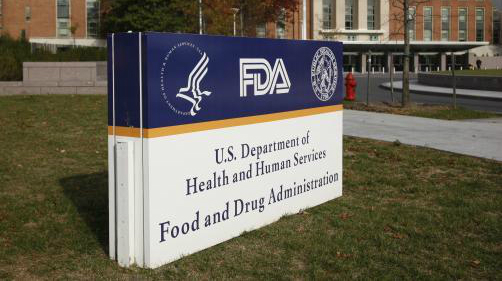FDA picks big tech and pharma for digital health fast-track

Some of the biggest names in health tech and pharma have been selected to take part in a new FDA fast-track to accelerate digital health approvals.
Announced by FDA Commissioner Scott Gottlieb in July as part of the broader Digital Health Innovation Plan, the FDA Pre-Cert (precertification) for Software Pilot Program aims to streamline access to disruptive technologies by evaluating the company behind a solution rather than each individual solution the company offers.
The move is part of Gottlieb's radical approach to de-cluttering FDA processes and its digital health products in-tray.
Those companies that are pre-certified will not need to provide the same level of pre-market data for each new digital health product, with some 'low risk' tools not needing any pre-market data at all.
The programme instead relies upon post-market data provided by pre-certified companies to prove any new solutions are safe and effective.
Apple, Fitbit, Samsung and Verily from the technology sphere, Johnson & Johnson and Roche from the pharma industry are among nine companies handpicked to try out the new approach.
Another is Pear Therapeutics - a Boston-based digital health therapeutics company, Tidepool - a California-based non-profit, diabetes software company, and Phosphorus - a New York-based computational genomics firm.
What exact tools will be evaluated from each company remains unknown at this point, but for tech companies like Apple and Fitbit, the pre-certification programme represents a speedy route into the healthcare sphere.
[caption id="attachment_25825" align="alignnone" width="150"] FDA Commissioner Scott Gottlieb[/caption]
FDA Commissioner Scott Gottlieb[/caption]
"Our method for regulating digital health products must recognise the unique and iterative characteristics of these products," said Gottlieb. "We need to modernise our regulatory framework so that it matches the kind of innovation we’re being asked to evaluate, and helps foster beneficial technology while ensuring that consumers have access to high-quality, safe and effective digital health devices."
Gottlieb unveiled this roster of leading companies recently during a keynote speech to the AdvaMedTech Conference in San Jose, California.
The new FDA chief, who has only been in the post since May, is already very popular with pharma for for his emphasis on removing barriers to market, and has won equal praise from those in the digital health and medical device field for this latest intervention.
Apple has been pushing on with its healthcare ambitions since the turn of the year, submitting patents for a variety of technologies such as wearable armbands and health-focused iPhone technology. There are also rumours of a future glucose tracking capability for its Watch wearable.
Fitbit on the other hand has been struggling with its consumer fitness trackers and has recently unveiled its Ionic smartwatch to try and claw back interest in its products. The Ionic includes sensors that track heart rate and blood oxygen and recently gained the ability to synchronise with Dexcom glucose monitors.
Samsung will likely include similar technologies in its upcoming Gear S4 wearables lineup which may feature in the programme, whilst Verily may now have a way of testing some of its more outlandish solutions like its miniaturised CGM or elusive 'smart' contact lens for diabetics.
Participants were selected as a deliberate cross-section of companies offering disruptive technologies - small to large size organisations, low and high risk device providers, and medical product developers and software developers.
Findings from the pilot programme will inform the construction of a formal approval programme for future digital health products.
[caption id="attachment_28280" align="alignnone" width="150"] FDA digital chief Bakul Patel[/caption]
FDA digital chief Bakul Patel[/caption]
"The diversity of the Pre-cert pilot programme participants means that we will receive a variety of input on how the industry defines organisational excellence and other key performance indicators," said Bakul Patel, associate director for digital health in the FDA’s Center for Devices and Radiological Health. "This feedback will be invaluable as we progress through the pilot and onto the next stages of digital health oversight.”












